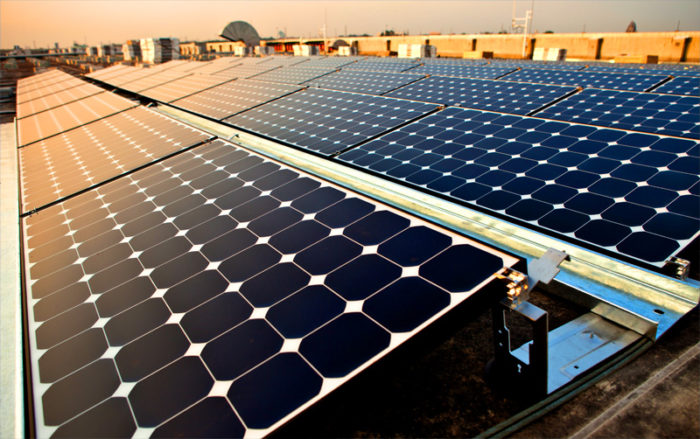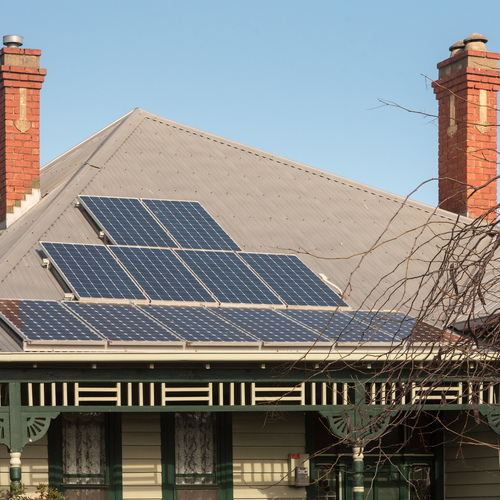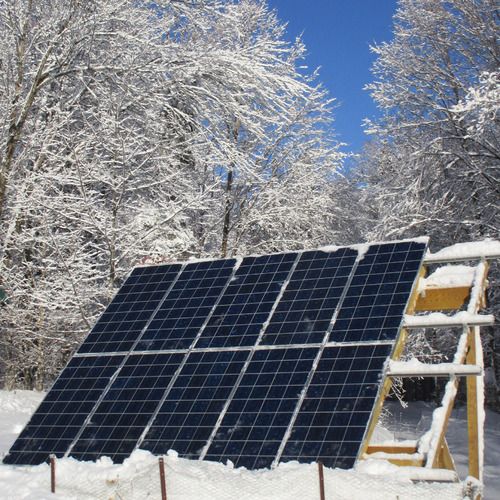
Image Credit: Intel Free Press / CC BY 2.0 / Flickr
Renewable energy developer SunEdison appears likely to seek protection from creditors by filing for bankruptcy in the near future, a published report says.
Greentech Media reports that the company’s “epic collapse” doesn’t come as a surprise to anyone who has been following developments, but adds “the actuality of the human and financial scale of this implosion is breathtaking.”
In an April 1 article, The Wall Street Journal reported that SunEdison is preparing a Chapter 11 filing to allow it to reorganize, and was in the process of seeking loans to keep its operations going during the process. In the meantime, its stock value has plunged from more than $30 a share last summer to about 23 cents per share on April 4, three days after the WSJ reported the pending bankruptcy filing.
The financial collapse, which the report says would be one of the largest in recent years, follows cancellation of SunEdison’s planned $1.9 billion takeover of Vivint Solar Inc. last month after the company was unable to line up financing for the deal.
What went wrong?
Bloomberg said in a report that SunEdison had gone on a buying binge, acquiring wind and solar farms in hopes of becoming the world’s largest clean energy company. Growth, however, was built on “financial engineering and cheap debt,” aided by eager bankers who took in fees with each acquisition that SunEdison made.
Even “smart, thoughtful and skeptical hedge funds” bought SunEdison’s story, Gordon Johnson, an analyst at Axiom Capital Management Inc., told Bloomberg. “It’s not just management’s fault, it’s not just their hubris. They just began to drink their own Kool-Aid.”
Founded in 2003, SunEdison was among the first companies to provide solar installations to customers without requiring a down payment. Beginning in 2014, the company began using a financing technique known as yieldcos, which are created to buy the renewable energy output of the parent company’s projects. The corporate parent gets money to pay for more projects, and the yieldcos shareholders get the dividends.
But for SunEdison, the high growth rate wasn’t sustainable, Bloomberg said.
SunEdison spent billions of dollars on acquisitions before announcing last July that it would buy Vivint for a 52% premium, allowing it to expand its reach into the residential solar market. Investors balked because homeowners weren’t thought to be as reliable as the utility customers that SunEdison had been dealing with. The backlash pushed stock prices down, and investors began to bail.
In addition to facing pressing financial problems, SunEdison is under investigation by the Securities and Exchange Commission and the Department of Justice, the WSJ reported.
Weekly Newsletter
Get building science and energy efficiency advice, plus special offers, in your inbox.















0 Comments
Log in or create an account to post a comment.
Sign up Log in